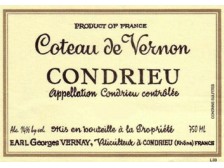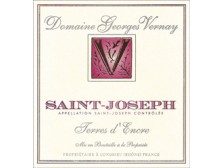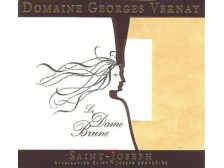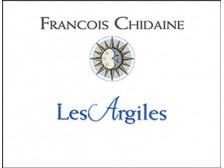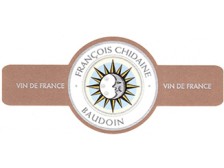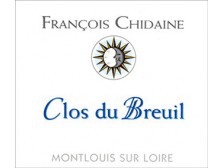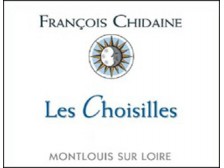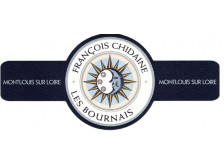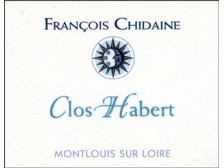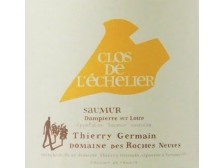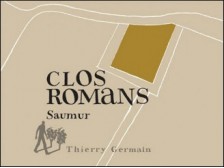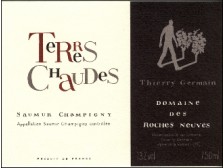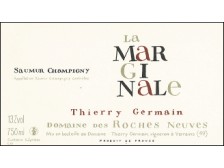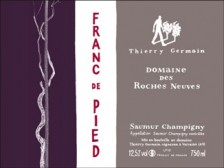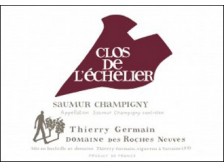Catalog
Other labels exist (Demeter, Biodyvin, Nature et Progrès...). These have more demanding specifications than organic farming but are not recognised by public agencies.
-
Georges Vernay was once known as the “Pope of Condrieu”, resurrecting this appellation from a mere 7 ha in 1960 to almost 200 ha today. Since 1997, his daughter Christine has continued his work step by step, converting the entire vineyard to biodynamic viticulture and creating new cuvées (Les Terrasses de l'Empire, Maison Rouge, Blonde du Seigneur...) for better parcel management.
Rated three stars in the Revue du Vin de France guide.Coteau de Vernon is the epicenter (and quintessence) of Condrieu: a wine of great aromatic complexity and extreme elegance.
The 2022 vintage in the press:
La Revue du Vin de France (Guide 2026): 97/100 "The phenomenal Coteau de Vernon, with remarkable balance and length."
Bettane + Desseauve (Guide 2026) : 97/100
More- To keep or to drink:
- Ready to drink
- Apogée:
- 2026-2038
- Organic certification:
- 2020
-
Georges Vernay was once known as the “Pope of Condrieu”, resurrecting this appellation from a mere 7 ha in 1960 to almost 200 ha today. Since 1997, his daughter Christine has continued his work step by step, converting the entire vineyard to biodynamic viticulture and creating new cuvées (Les Terrasses de l'Empire, Maison Rouge, Blonde du Seigneur...) for better parcel management.
Rated three stars in the Revue du Vin de France guide.More- To keep or to drink:
- Ready to drink
- Apogée:
- 2025-2033
- Organic certification:
- 2020
-
Georges Vernay was once known as the “Pope of Condrieu”, resurrecting this appellation from a mere 7 ha in 1960 to almost 200 ha today. Since 1997, his daughter Christine has continued his work step by step, converting the entire vineyard to biodynamic viticulture and creating new cuvées (Les Terrasses de l'Empire, Maison Rouge, Blonde du Seigneur...) for better parcel management.
Rated three stars in the Revue du Vin de France guide.La Dame Brune, with its minerality and balance, comes from old vines (over 45 years old) planted on the granite slopes of Saint-Joseph.
More- To keep or to drink:
- Wait 1 to 2 years
- Apogée:
- 2027-2038
- Organic certification:
- 2020
-
It is François Chidaine who, since 1989, has sounded the awakening of Touraine wines and given the white Chenin its letters of nobility. Biodynamic since 1999, his wines show a crystalline purity and a vibrancy that are a reference... with prices that are just as exemplary.
Rated three stars in the Revue du Vin de France guide.
The Vouvray wines of Domaine Chidaine (Les Argiles, Baudoin) are hidden under the appellation Vin de France. They can no longer claim the Vouvray appellation since 2011 because they are vinified at the estate in Montlouis-sur-Loire (i.e. on the other side of the bridge over the Loire) and not in the commune of Vouvray. The INAO has reasons that reason does not know!More- To keep or to drink:
- Ready to drink
- Apogée:
- 2025-2032
- Organic certification:
- 1992
-
It is François Chidaine who, since 1989, has sounded the awakening of Touraine wines and given the white Chenin its letters of nobility. Biodynamic since 1999, his wines show a crystalline purity and a vibrancy that are a reference... with prices that are just as exemplary.
Rated three stars in the Revue du Vin de France guide.
The Vouvray wines of Domaine Chidaine (Les Argiles, Baudoin) are hidden under the appellation Vin de France. They can no longer claim the Vouvray appellation since 2011 because they are vinified at the estate in Montlouis-sur-Loire (i.e. on the other side of the bridge over the Loire) and not in the commune of Vouvray. The INAO has reasons that reason does not know!More- To keep or to drink:
- Wait 1 to 2 years
- Apogée:
- 2027-2037
- Organic certification:
- 1992
-
It is François Chidaine who, since 1989, has sounded the awakening of Touraine wines and given the white Chenin its letters of nobility. Biodynamic since 1999, his wines show a crystalline purity and a vibrancy that are a reference... with prices that are just as exemplary.
Rated three stars in the Revue du Vin de France guide.Clos du Breuil, slender and saline, comes from 60-year-old vines on a flinty clay terroir.
More- To keep or to drink:
- Ready to drink
- Apogée:
- 2025-2032
- Organic certification:
- 1992
-
It is François Chidaine who, since 1989, has sounded the awakening of Touraine wines and given the white Chenin its letters of nobility. Biodynamic since 1999, his wines show a crystalline purity and a vibrancy that are a reference... with prices that are just as exemplary.
Rated three stars in the Revue du Vin de France guide.Clos du Breuil, slender and saline, comes from 60-year-old vines on a flinty clay terroir.
The 2023 vintage in the press:
La Revue du Vin de France (Guide 2026) : 90/100
Bettane + Desseauve (Guide 2026) : 92/100
More- To keep or to drink:
- Ready to drink
- Apogée:
- 2025-2030
- Organic certification:
- 1992
-
It is François Chidaine who, since 1989, has sounded the awakening of Touraine wines and given the white Chenin its letters of nobility. Biodynamic since 1999, his wines show a crystalline purity and a vibrancy that are a reference... with prices that are just as exemplary.
Rated three stars in the Revue du Vin de France guide.Les Choisilles, a blend of different parcels, is more rounded and full-bodied, with notes of white peach.
The 2022 vintage in the press:
La Revue du Vin de France (Guide 2025): 93/100 “Fresh aromatic nuances (floral, aniseed), Les Choisilles delivers with finesse.”
La Revue du Vin de France (February 2024): 93/100 “ample and comfortable, firm and full of beautiful bitters.”
More- To keep or to drink:
- Ready to drink
- Apogée:
- 2025-2033
- Organic certification:
- 1992
-
It is François Chidaine who, since 1989, has sounded the awakening of Touraine wines and given the white Chenin its letters of nobility. Biodynamic since 1999, his wines show a crystalline purity and a vibrancy that are a reference... with prices that are just as exemplary. Rated three stars in the Revue du Vin de France guide.
Les Bournais, produced from clay-limestone soil (tuffeau) free of flint, this is the winery's most intense wine, with remarkable length on the palate.
More- To keep or to drink:
- Wait 1 to 2 years
- Apogée:
- 2027-2037
- Organic certification:
- 1992
-
It is François Chidaine who, since 1989, has sounded the awakening of Touraine wines and given the white Chenin its letters of nobility. Biodynamic since 1999, his wines show a crystalline purity and a vibrancy that are a reference... with prices that are just as exemplary.
Rated three stars in the Revue du Vin de France guide.Clos Habert is a ''half sweet'' wine (11.9 g/L residual sugar), with fleshy fruit (Williams pear), a smooth palate and elegant freshness.
The 2020 vintage in the press:
La Revue du Vin de France (February 2024): 93/100 “a luminous, tender white, harmonious in its buried richness.”
Vinous (R. Gibb - May 2024): 90/100 "The 2020 Montlouis Clos Habert is an off-dry Chenin Blanc with the ripeness and richness of the vintage showing through. Pear and nectarine fruit edge into almost exotic notes and lees-derived pastry characters."
Bettane + Desseauve (Guide 2026) : 93/100
More- To keep or to drink:
- Ready to drink
- Apogée:
- 2025-2037
- Organic certification:
- 1992
-
This is the domain which, by its passage into biodynamic viticulture and its parcel selections, shows the most beautiful qualitative progression of the Loire Valley. Crystalline Chenins and ripe Cabernet Franc, all matured with mastery to sublimate the purity and identity of the juices, between tension, crispness, refinement and generosity. In white as in red, a dazzling and flawless range.
Rated three stars in the Revue du Vin de France guide.The 2021 vintage in the press:
Vinous (R. Gibb - May 2024) : 92/100 "Don't mess with the 2021 Saumur blanc L'Échelier: it's got attitude–flirty, floral and transparent, with the purity of a glacier. The Germains didn't do any malolactic despite the natural acidity of this vintage. This is an acid fiend's wine, but it's ripe phenolics give real firmness, like a fierce girl. Melon and apple flavors linger on the very pure and strict conclusion."
More- To keep or to drink:
- Ready to drink
- Apogée:
- 2025-2032
- Organic certification:
- 2004
-
This is the domain which, by its passage into biodynamic viticulture and its parcel selections, shows the most beautiful qualitative progression of the Loire Valley. Crystalline Chenins and ripe Cabernet Franc, all matured with mastery to sublimate the purity and identity of the juices, between tension, crispness, refinement and generosity. In white as in red, a dazzling and flawless range.
Rated three stars in the Revue du Vin de France guide.The 2020 vintage in the press:
Vinous (R. Gibb - May 2024) : 91/100 "There's a richness to the 2020 Saumur blanc L'Échelier that reflects the dry, warm conditions of the vintage. Ripe and tropical yet saline with notes of almond meal, it's already beginning to develop. The 2020 rampages to retain its freshness despite the exotic fruit."
More- To keep or to drink:
- Ready to drink
- Apogée:
- 2025-2032
- Organic certification:
- 2004
-
This is the domain which, by its passage into biodynamic viticulture and its parcel selections, shows the most beautiful qualitative progression of the Loire Valley. Crystalline Chenins and ripe Cabernet Franc, all matured with mastery to sublimate the purity and identity of the juices, between tension, crispness, refinement and generosity. In white as in red, a dazzling and flawless range.
Rated three stars in the Revue du Vin de France guide.The 2019 vintage in the press :
Vinous (R. Gibb - July 2024) : 95/100 "The 2019 Saumur blanc L'Échelier is dense, concentrated and ripe yet harnessed, with excellent power and purity coursing through its veins. It's salty and tangy, bone-dry and firm. The 2019 is my favorite vintage of the past decade."
More- To keep or to drink:
- Ready to drink
- Apogée:
- 2021-2028
- Organic certification:
- 2004
- Potential alcohol:
- 13.5%
-
This is the domain which, by its passage into biodynamic viticulture and its parcel selections, shows the most beautiful qualitative progression of the Loire Valley. Crystalline Chenins and ripe Cabernet Franc, all matured with mastery to sublimate the purity and identity of the juices, between tension, crispness, refinement and generosity. In white as in red, a dazzling and flawless range.
Rated three stars in the Revue du Vin de France guide.The 2018 vintage in the press :
Vinous (R. Gibb - July 2024) : 92/100 « The 2018 Saumur blanc L'Échelier is dry, round, nutty and tropical. It was a very warm vintage, giving richness and ripe pineapple character. A racy acidity holds this wine together like tight reins. There's a contrast here between that tropicality and the zingy, crunchy acidity, which messes with your head. »
More- To keep or to drink:
- Ready to drink
- Apogée:
- 2020-2030
- Organic certification:
- 2004
- Potential alcohol:
- 13.5%
-
This is the domain which, by its passage into biodynamic viticulture and its parcel selections, shows the most beautiful qualitative progression of the Loire Valley. Crystalline Chenins and ripe Cabernet Franc, all matured with mastery to sublimate the purity and identity of the juices, between tension, crispness, refinement and generosity. In white as in red, a dazzling and flawless range.
Rated three stars in the Revue du Vin de France guide.The 2017 vintage in the press :
Vinous (R. Gibb - July 2024) : 93/100 "The golden-hued 2017 Saumur blanc L'Échelier shows ripe flavors of pineapple, honey and truffle, almost as if there's some botrytis–but there's not. It's bone-dry, yet there's a tender middle to this light-bodied wine. Expect iodine, giving a salty-like-the-sea impression. The 2017 is ready to enjoy now."
More- To keep or to drink:
- Ready to drink
- Apogée:
- 2021-2028
- Organic certification:
- 2004
- Potential alcohol:
- 13%
-
This is the domain which, by its passage into biodynamic viticulture and its parcel selections, shows the most beautiful qualitative progression of the Loire Valley. Crystalline Chenins and ripe Cabernet Franc, all matured with mastery to sublimate the purity and identity of the juices, between tension, crispness, refinement and generosity. In white as in red, a dazzling and flawless range.
Rated three stars in the Revue du Vin de France guide.The 2016 vintage in the press:
Vinous (R. Gibb - July 2024) : 92/100 "Like a good aged Riesling, the 2016 Saumur blanc L'Échelier offers up toast, marmalade, honey and is there the slightest hint of petrol here? A bit less evolved on the palate then on the nose, ot gives off a charming citrus freshness, but I'd love a little more depth."
More- To keep or to drink:
- Ready to drink
- Apogée:
- 2022-2028
- Organic certification:
- 2004
- Potential alcohol:
- 12.5%
-
This is the domain which, by its passage into biodynamic viticulture and its parcel selections, shows the most beautiful qualitative progression of the Loire Valley. Crystalline Chenins and ripe Cabernet Franc, all matured with mastery to sublimate the purity and identity of the juices, between tension, crispness, refinement and generosity. In white as in red, a dazzling and flawless range.
Rated three stars in the Revue du Vin de France guide.The 2022 vintage in the press:
La Revue du Vin de France (April 2025): 95/100 "From a delightful clos with soils of clay, silt, sandstone and flint on tufa, here is Clos Romans, a radiant white evoking flowers and citrus fruit, full of nuances. Magnificent purity of substance. Exceptional drive and unforgettable freshness in this sunny vintage."
Vinous (Rebecca Gibb - May 2024) : 94/100 "The 2022 Saumur blanc Clos Romans is focused, concentrated and powerful, displaying floral, pear and melon aromas. It's a structured style, creating a picture frame within which the wine sits. Intriguing with long, apple-infused length, this wine has an identity and is proud of it."
More- To keep or to drink:
- Wait 3 to 5 years
- Apogée:
- 2029-2041
- Organic certification:
- 2004
-
This is the domain which, by its passage into biodynamic viticulture and its parcel selections, shows the most beautiful qualitative progression of the Loire Valley. Crystalline Chenins and ripe Cabernet Franc, all matured with mastery to sublimate the purity and identity of the juices, between tension, crispness, refinement and generosity. In white as in red, a dazzling and flawless range.
Rated three stars in the Revue du Vin de France guide.The 2021 vintage in the press:
Vinous (R. Gibb - June 2023): 94/100 “The 2021 Clos Romans peaceful entry starts as if it has repented for its sins, but don't be fooled: this dry style has a fierce arrow-loke line of acidity and tension penetrating the win's core. In its precise and tense youth, this aromatically restrained wine offers subtle florals, quince and less-derived notes, but it needs time to unfurl, relax and blossom.”
La Revue du Vin de France (J. Cukierman - April 2024): 96-97/100 “A dry and straight wine, but very charming in its aromatic palette with fresh almond and lemon bergamot [...] It offers great tension, a very pure structure and takes us into its marine and iodized universe”.
La Revue du Vin de France (A. Goujard - April 2024): 95/100 “It evokes fresh almond and pineapple. Invigorating aromatic vitality. Chiseled substance on the palate, a magnificent flowing, intense texture. The fatness builds slowly to an extremely salivating finish. Luminous !”
More- To keep or to drink:
- Wait 1 to 2 years
- Apogée:
- 2028-2039
- Organic certification:
- 2004
-
This is the domain which, by its passage into biodynamic viticulture and its parcel selections, shows the most beautiful qualitative progression of the Loire Valley. Crystalline Chenins and ripe Cabernet Franc, all matured with mastery to sublimate the purity and identity of the juices, between tension, crispness, refinement and generosity. In white as in red, a dazzling and flawless range.
Rated three stars in the Revue du Vin de France guide.More- To keep or to drink:
- Ready to drink
- Apogée:
- 2026-2035
- Organic certification:
- 2004
-
This is the domain which, by its passage into biodynamic viticulture and its parcel selections, shows the most beautiful qualitative progression of the Loire Valley. Crystalline Chenins and ripe Cabernet Franc, all matured with mastery to sublimate the purity and identity of the juices, between tension, crispness, refinement and generosity. In white as in red, a dazzling and flawless range.
Rated three stars in the Revue du Vin de France guide.The 2022 vintage in the press:
Vinous (R. Gibb - July 2024): 92/100 “The 2022 Terres Chaudes offers silky substance and something to get your teeth into despite its elegance and finesse. As ever, there's pure fruit, harmony and bite. A firmness to the tannins appears right at the end, lending structure that gives the wine frame."
More- To keep or to drink:
- Ready to drink
- Apogée:
- 2025-2034
- Organic certification:
- 2004
-
This is the domain which, by its passage into biodynamic viticulture and its parcel selections, shows the most beautiful qualitative progression of the Loire Valley. Crystalline Chenins and ripe Cabernet Franc, all matured with mastery to sublimate the purity and identity of the juices, between tension, crispness, refinement and generosity. In white as in red, a dazzling and flawless range.
Rated three stars in the Revue du Vin de France guide.The 2021 vintage in the press:
Vinous (R. Gibb - December 2023): 89/100 “The 2021 Terres Chaudes is a highly aromatic, light-bodied style although there is a touch of juiciness through the mid-palate. True to its vintage, there's no doubting the refreshing acidity and the touch of herbal in the flavor profile. The tannins are well handled, and the fruit is pure and adulterated, as well as lightly spiced."
More- To keep or to drink:
- Ready to drink
- Apogée:
- 2024-2032
- Organic certification:
- 2004
-
This is the domain which, by its passage into biodynamic viticulture and its parcel selections, shows the most beautiful qualitative progression of the Loire Valley. Crystalline Chenins and ripe Cabernet Franc, all matured with mastery to sublimate the purity and identity of the juices, between tension, crispness, refinement and generosity. In white as in red, a dazzling and flawless range.
Rated three stars in the Revue du Vin de France guide.More- To keep or to drink:
- Ready to drink
- Apogée:
- 2020-2028
- Organic certification:
- 2004
- Potential alcohol:
- 12.5%
-
This is the domain which, by its passage into biodynamic viticulture and its parcel selections, shows the most beautiful qualitative progression of the Loire Valley. Crystalline Chenins and ripe Cabernet Franc, all matured with mastery to sublimate the purity and identity of the juices, between tension, crispness, refinement and generosity. In white as in red, a dazzling and flawless range.
Rated three stars in the Revue du Vin de France guide.More- To keep or to drink:
- Ready to drink
- Apogée:
- 2025-2035
- Organic certification:
- 2004
-
This is the domain which, by its passage into biodynamic viticulture and its parcel selections, shows the most beautiful qualitative progression of the Loire Valley. Crystalline Chenins and ripe Cabernet Franc, all matured with mastery to sublimate the purity and identity of the juices, between tension, crispness, refinement and generosity. In white as in red, a dazzling and flawless range.
Rated three stars in the Revue du Vin de France guide.More- To keep or to drink:
- Ready to drink
- Apogée:
- 2022-2032
- Organic certification:
- 2004
- Potential alcohol:
- 13.5%
-
This is the domain which, by its passage into biodynamic viticulture and its parcel selections, shows the most beautiful qualitative progression of the Loire Valley. Crystalline Chenins and ripe Cabernet Franc, all matured with mastery to sublimate the purity and identity of the juices, between tension, crispness, refinement and generosity. In white as in red, a dazzling and flawless range.
Rated three stars in the Revue du Vin de France guide.Rated 17/20 by M. Bettane and 17.5/20 by the Revue du Vin de France (February 2019) "its velvety texture gives it a sublime fullness of fruit and an invigorating length on the palate [...] With a singular definition, Ma Marginale even evokes an airy balance of beautiful Burgundian pinot noir".
More- To keep or to drink:
- Ready to drink
- Apogée:
- 2020-2030
- Organic certification:
- 2004
- Potential alcohol:
- 12.5%
-
This is the domain which, by its passage into biodynamic viticulture and its parcel selections, shows the most beautiful qualitative progression of the Loire Valley. Crystalline Chenins and ripe Cabernet Franc, all matured with mastery to sublimate the purity and identity of the juices, between tension, crispness, refinement and generosity. In white as in red, a dazzling and flawless range.
Rated three stars in the Revue du Vin de France guide.La Marginale is the cuvée of reference for the red wines of the Domaine des Roches Neuves, 100% Cabernet Franc facing south on deep limestone.
More- To keep or to drink:
- Ready to drink
- Apogée:
- 2020-2028
- Organic certification:
- 2004
- Potential alcohol:
- 13%
-
This is the domain which, by its passage into biodynamic viticulture and its parcel selections, shows the most beautiful qualitative progression of the Loire Valley. Crystalline Chenins and ripe Cabernet Franc, all matured with mastery to sublimate the purity and identity of the juices, between tension, crispness, refinement and generosity. In white as in red, a dazzling and flawless range.
Rated three stars in the Revue du Vin de France guide.La Marginale is the cuvée of reference for the red wines of the Domaine des Roches Neuves, 100% Cabernet Franc facing south on deep limestone.
More- To keep or to drink:
- Ready to drink
- Apogée:
- 2016-2028
- Organic certification:
- 2004
- Potential alcohol:
- 12.5%
-
This is the domain which, by its passage into biodynamic viticulture and its parcel selections, shows the most beautiful qualitative progression of the Loire Valley. Crystalline Chenins and ripe Cabernet Franc, all matured with mastery to sublimate the purity and identity of the juices, between tension, crispness, refinement and generosity. In white as in red, a dazzling and flawless range.
Rated three stars in the Revue du Vin de France guide.The 2020 vintage in the press :
Vinous (R. Gibb - June 2022): 94/100 "The 2020 Franc de Pied [...] reveals itself to be a richly fruited, savory style that fills the mouth with a balloon of chalky silness. The limestone element really shows itself on the long finish, all finely grained texture and sinew. As you'd hope from Saumur-Champigny, there's no sense of weight or heft."
More- To keep or to drink:
- Ready to drink
- Apogée:
- 2026-2038
- Organic certification:
- 2004
-
This is the domain which, by its passage into biodynamic viticulture and its parcel selections, shows the most beautiful qualitative progression of the Loire Valley. Crystalline Chenins and ripe Cabernet Franc, all matured with mastery to sublimate the purity and identity of the juices, between tension, crispness, refinement and generosity. In white as in red, a dazzling and flawless range.
Rated three stars in the Revue du Vin de France guide.The 2021 vintage in the press:
Vinous (R. Gibb - December 2023): 92/100 “The 2021Clos de l'Echelier is a delicate and tender style, with impressive purity of fruit. It is almost cloud-like in its lightness on the palate. The finest of chalk-like tannins covers the mouth in a blanket of finely-pixelated image, which can no doubt be attributed to this limestone-rich, north-facing site as well as a very delicate hand when it comes to extraction. Being 2021, there's no shortage of acidity, but it is entirely integrated within the wine, providing a thread of tension that courses through its core, leaving everything tied up on the precise finish. This is a harmonious,well-crafted example."
More- To keep or to drink:
- Ready to drink
- Apogée:
- 2026-2037
- Organic certification:
- 2004
-
This is the domain which, by its passage into biodynamic viticulture and its parcel selections, shows the most beautiful qualitative progression of the Loire Valley. Crystalline Chenins and ripe Cabernet Franc, all matured with mastery to sublimate the purity and identity of the juices, between tension, crispness, refinement and generosity. In white as in red, a dazzling and flawless range.
Rated three stars in the Revue du Vin de France guide.More- To keep or to drink:
- Ready to drink
- Apogée:
- 2024-2033
- Organic certification:
- 2004
- Potential alcohol:
- 13.5%


